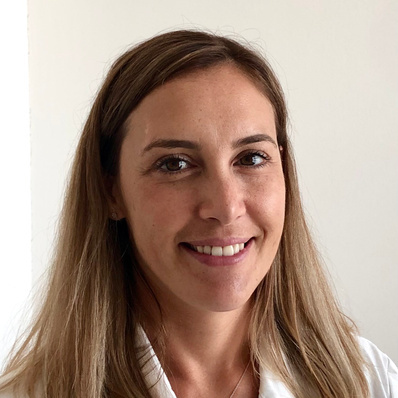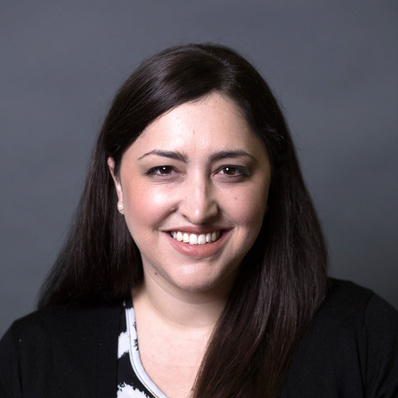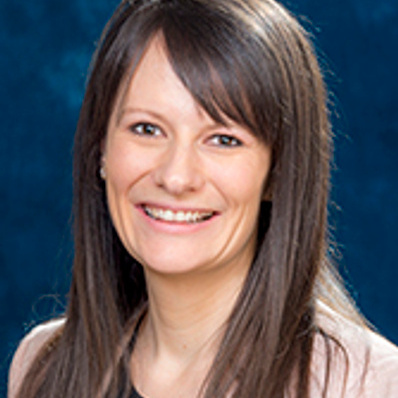2021 Breakthrough T1D Fellowship Awardees

Claudia Piona
Breakthrough 2021 Awardee

Claudia Piona
Breakthrough 2021 Awardee
Claudia Piona, MD, is an Italian Pediatrician working at the Paediatric Diabetes and Metabolic Disorders Unit, Regional Center for Paediatric Diabetes of the University Hospital of Verona (Italy), under Prof. Claudio Maffeis.
She is also a PhD student of the PhD School of Life and Health Sciences, PhD Programme in Cardiovascular Sciences, Department of Surgery, Dentistry, Paediatrics and Gynaecology of the University of Verona.
She received medical training at the Faculty of Medicine of the University of Verona, where she graduated in 2012. Subsequently, she attended the Postgraduate School of Paediatrics, dedicating herself to acquiring specialized skills in Paediatric Diabetology and Endocrinology. In 2017, during her pediatric residency, she pursued a research fellowship at the Department of Paediatric Endocrinology, Diabetes and Metabolic Diseases of the University Children's Hospital of Ljubljana under the mentorship of Prof. Tadej Battelino and Dr. Klemen Dovc.
In 2018, she attended the 18th ISPAD Science School for Physicians in Kanagawa (Japan), and in 2019, she was certified as a Pediatrician.
Dr. Piona is an active member of the Italian and international pediatric scientific communities, particularly the ISPAD Young Researchers Community- the JENIOUS group. In 2021, she joined the ISPAD Communication Board as a volunteer member and was recently elected JENIOUS leader.
To constantly try to improve the standards of care and the future quality of life of children with diabetes, in the last years, Dr. Piona’s clinical and scientific activities focused on type 1 diabetes management and screening of diabetes complications in children and youths. In particular, she conducted several studies focusing on identifying early clinical and biomolecular markers of diabetic neuropathy, nephropathy, and macrovascular disease.
With the generous support of the JDRF-ISPAD Research Fellowship, Dr. Piona will conduct the research project “Early markers of long-term diabetes complications in children and youths with Type 1 Diabetes: pathophysiologic role of glycemic control, glucose variability and oxidative stress.”. The study aims to evaluate the associations between early signs of diabetic complications, metrics measuring short-term glycemic control and glucose variability, oxidative stress, and its genetic predisposition in children and youths with T1D. The study will advance the knowledge of the role of these factors in the pathogenic way leading to the development of diabetes complications in children and youths with T1D. Dr. Piona will conduct this project in the Paediatric Diabetology and Metabolism Diseases unit of the University Hospital of Verona and at the laboratory of the aforementioned unit under the supervision of Prof. Claudio Maffeis.

Emilia Kowalczyk
Breakthrough 2021 Awardee

Emilia Kowalczyk
Breakthrough 2021 Awardee
Emilia Kowalczyk, MD, completed her medical degree at the First Faculty of Medicine at the Medical University of Warsaw, Poland, in 2016. She is a clinical fellow in general pediatrics at the Department of Pediatric Diabetology and Pediatrics in the Pediatric Teaching Clinical Hospital of the Medical University of Warsaw.
Dr Kowalczyk has developed a strong interest in research during medical studies as an active participant in a student’s scientific group and was awarded scholarships to hospitals in Portugal and Norway. She works clinically as a member of a dynamic multidisciplinary team that leads international trials focusing on preventing and treating children and adolescents with type 1 diabetes. She was an author and co-author of research in pediatric diabetology and endocrinology, which were presented at annual international and national conferences. Currently, Dr Kowalczyk conducts PhD research. Her scientific interests are focused on the influence of carbohydrates on postprandial glycemia, predictors of metabolic control in children with newly diagnosed type 1 diabetes, and factors leading to prolonged glycemic time in range. She is also lucky enough to serve as a medical provider for the diabetes foundation's annual diabetes camp.
Dr Kowalczyk is the principal investigator on a study titled: “Super Bolus – a remedy for a high glycemic index meal in children with type 1 diabetes on insulin pump therapy?” which was awarded the ISPAD-JDRF fellowship. She hypothesized that Super Bolus is an effective strategy to prevent postprandial hyperglycemia and late hypoglycemia after a high glycemic index meal (h-GI) compared to the normal bolus. Super Bolus was defined as an increased dose of prandial insulin (50%) to quickly cover the h-GI carbs and suspended basal insulin during the next 2 hours to account for the increased levels of active insulin in circulation after the bolus to prevent hypoglycemia. The study's results will be used in clinical practice, allowing us to optimize the insulin dosing more precisely for this product.

Rachel Wasserman
Breakthrough 2021 Awardee

Rachel Wasserman
Breakthrough 2021 Awardee
Dr. Rachel Wasserman is a licensed clinical psychologist and assistant research scientist at the Center for Healthcare Delivery Science at Nemours Children’s Hospital in Orlando, FL. She also holds appointments as an Assistant Professor at the University of Central Florida College of Medicine and on the Graduate Faculty of the University of Central Florida. Dr. Wasserman received her bachelor’s degree from Illinois Tech and her MA and PhD in Clinical Psychology from Loyola University Chicago. She completed her clinical residency and NIDDK-funded post-doctoral research fellowship at Baylor College of Medicine/ Texas Children’s Hospital.
Dr. Wasserman’s research focuses on improving engagement and glycemic outcomes for adolescents and young adults with type 1 diabetes (T1D). Previously, Dr. Wasserman developed a model and self-report measures of T1D-specific risk-taking behaviors for adolescents and young adults. The model and measures are based on the premise that unhealthy risk-taking behaviors (e.g., substance use, risky driving, risky sexual behaviors) occur at similar rates among adolescents and young adults with and without T1D but are especially problematic for those with T1D because these behaviors can interfere with T1D care and/or carry additional health risks. For example, excessive alcohol use can lead to an inability to participate in T1D care tasks and cause alcohol-induced hypoglycemia.
With generous support from ISPAD and JDRF, Dr. Wasserman will work with Dr. Susana Patton, an expert in behavioral intervention research for youth with T1D, and Dr. Christopher Houck, an established adolescent risk-taking behavior researcher. Dr. Houck developed a behavioral intervention that reduces and prevents the onset of future risk-taking behaviors by teaching adolescents the connection between emotions and behaviors and by identifying and practicing emotion regulation techniques that adolescents can use in future risky situations.
Dr. Wasserman and her mentors aim to adapt Dr. Houck’s manual intervention to target T1D-specific risk-taking behaviors. For the current study, Dr. Wasserman proposes to engage adolescents with T1D via a private online forum to provide feedback and suggestions for a new, T1D-focused risk-taking prevention intervention and work with a group of stakeholder representatives to apply findings from the online forum to make adaptations and produce a novel T1D-relevant adolescent risk-taking intervention.

Vanessa Jewell
Breakthrough 2021 Awardee

Vanessa Jewell
Breakthrough 2021 Awardee
Vanessa Jewell, PhD, OTR/L, is an associate professor in the Occupational Therapy Department at Creighton University in Omaha, Nebraska. While completing her Ph.D. in occupational therapy at Texas Woman's University, she developed a widely recognized assessment titled The Occupation-Centered Intervention Assessment (while completing her PhD in Occupational Therapy at Texas Woman’s). This assessment provides a guide for theory application for developing and testing novel occupational therapy interventions. The OCIA has undergone extensive testing to ensure it’s both a valid and reliable assessment, resulting in numerous peer-reviewed publications and presentations.
Dr. Jewell currently leads a large interprofessional type 1 diabetes research and wellness lab focusing on community-engaged research. She engages in research aimed at improving diabetes-related health outcomes, access to rural healthcare, and the engagement of stakeholders in the research process, specifically for families with young children living with type 1 diabetes. She has expertise in assessment development and testing, stakeholder engagement, diabetes health management and measurement, mixed-method research design, implementation, and dissemination.
Dr. Jewell is the PI on a study titled “Psychometric Testing of the Diabetes Health Management and Distress Scale – Parents of Young Children,” awarded the ISPAD-JDRF Fellowship. This study aims to establish the psychometric properties of a newly developed type 1 diabetes assessment. The Diabetes Health Management and Distress Scale – Parents of Young Children is the first known assessment to measure the following two domains: diabetes management routines of parents caring for young children with diabetes and parent-specific diabetes distress, from an occupational therapy perspective. The findings from this study are critical, so novel occupational therapy interventions may be developed and evaluated to support the physical and psychosocial well-being of families with children with T1D.
Occupational therapy practitioners can address the management of chronic health conditions, such as T1D, while providing support to the family/caregiver to improve diabetes health management through the examination of a family’s roles, routines, and habits. However, accurate evaluation of the effectiveness of novel interventions is imperative to advance the provision of diabetes care. Therefore, the development and testing of this novel occupational therapy diabetes assessment is critical to the advancement of healthcare practices and improved child health outcomes.


